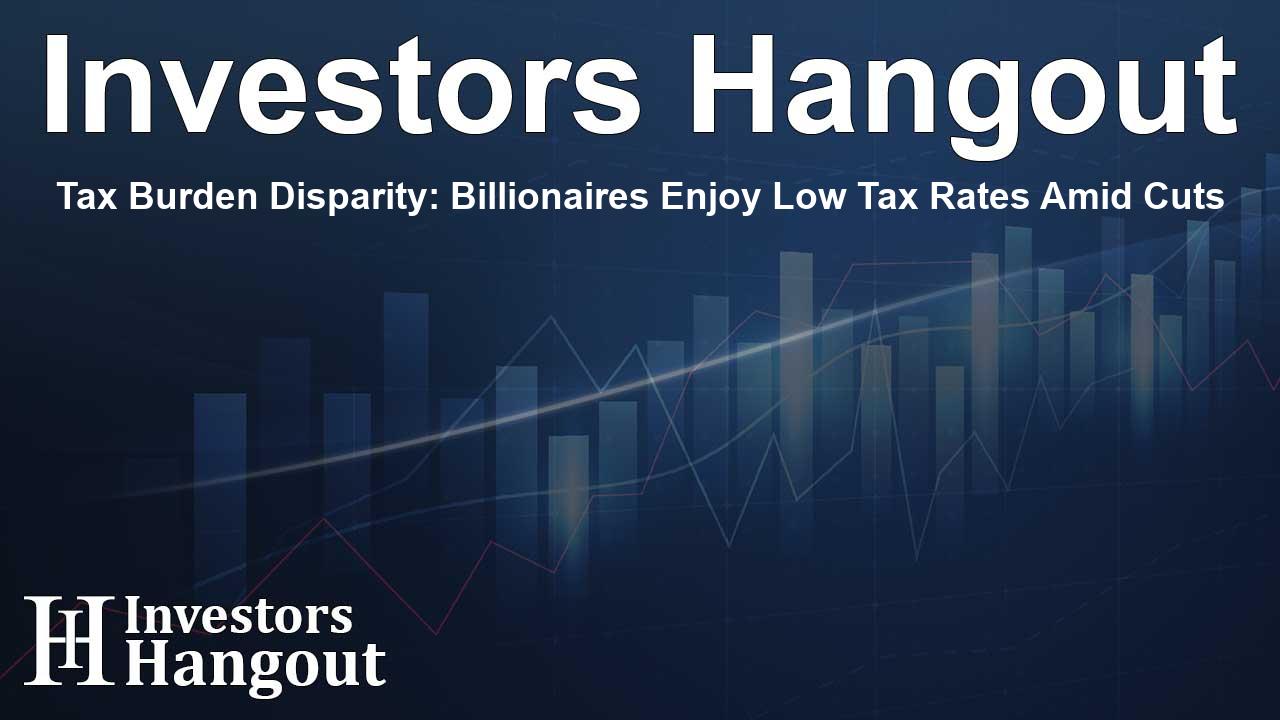Tax Burden Disparity: Billionaires Enjoy Low Tax Rates Amid Cuts

Understanding the Tax Rate Shift for the Ultra-Wealthy
The effective tax rate for the wealthiest Americans, especially those on the Forbes 400 list, has seen a remarkable decline. A study suggests that this rate has dropped from 30% to just 24% following the GOP tax overhaul in 2017. This notable change was supported by politicians who viewed the tax cuts as a significant achievement for economic growth.
The Effects of the Recent Tax Cuts
These cuts, which continued for an extended period, have provided billionaires with more means to retain their wealth. The average tax rate for the general U.S. population stands at about 30%, while those in the highest income brackets reportedly pay around 45%. However, for the wealthiest individuals in the country, the effective tax rate has fallen to approximately 22%, presenting a stark contrast that raises questions about tax fairness.
Analyzing the Consequences of Wealth Concentration
According to the recent research, the disparity in tax rates is indicative of a system that favors the wealthy. Economists have noted that the wealth held by the top 0.0002% of Americans has risen dramatically. Whereas this elite group represented a mere 2% of the country's economy in the early 1980s, their holdings are projected to hit 20% by the mid-2020s, with much of this growth attributed to just 100 individuals.
Shifting Taxation Dynamics
The methods of taxation have also evolved post-2017. For instance, the taxes on wealth, unlike income taxes, have dropped significantly. From a rate of 2.7% prior to the tax cuts, it has now plummeted to 1.3%. While the U.S. does not impose a direct wealth tax, there have been discussions about exploring such measures in the future.
Examining the Impact on Different Income Levels
Research indicates that these tax cuts have made a considerable impact on wealth distribution. Lower-income households are notably affected, with cuts leading to a reduction in essential social services and economic resources. Consequently, while the rich have gained substantial tax savings, the financial burden has shifted towards those with lesser means.
Emerging Trends in Economic Inequality
This widening gap between the ultra-rich and the everyday American is part of a broader discussion surrounding economic inequalities. Thought leaders in the field have referred to this situation as a new class structure emerging from policies that systematically benefit the wealthy. Scholars argue that these changes are indicative of an environment that actively promotes upward redistribution of wealth.
Frequently Asked Questions
What is the effective tax rate for billionaires compared to average Americans?
Billionaires now face an effective tax rate of around 24%, while the average American pays closer to 30%, and the wealthiest earners about 45%.
Why did the effective tax rate decline for the wealthy?
The decline in the tax rate for billionaires is attributed to the 2017 GOP tax cuts, which have favored the top earners significantly.
What are the broader implications of these tax cuts?
The implications include a growing wealth divide, reduced funding for social programs for low-income families, and a systematic shift in resources toward the wealthy.
How has taxation on wealth changed since 2017?
Post-2017, taxation on wealth has dropped from 2.7% to 1.3%, indicating a significant reduction in tax burdens for the ultra-wealthy.
Who benefits from the current tax system?
The current tax system predominantly benefits the wealthiest individuals, creating an environment where wealth concentration increases most for the top echelons of society.
About The Author
Contact Dominic Sanders privately here. Or send an email with ATTN: Dominic Sanders as the subject to contact@investorshangout.com.
About Investors Hangout
Investors Hangout is a leading online stock forum for financial discussion and learning, offering a wide range of free tools and resources. It draws in traders of all levels, who exchange market knowledge, investigate trading tactics, and keep an eye on industry developments in real time. Featuring financial articles, stock message boards, quotes, charts, company profiles, and live news updates. Through cooperative learning and a wealth of informational resources, it helps users from novices creating their first portfolios to experts honing their techniques. Join Investors Hangout today: https://investorshangout.com/
The content of this article is based on factual, publicly available information and does not represent legal, financial, or investment advice. Investors Hangout does not offer financial advice, and the author is not a licensed financial advisor. Consult a qualified advisor before making any financial or investment decisions based on this article. This article should not be considered advice to purchase, sell, or hold any securities or other investments. If any of the material provided here is inaccurate, please contact us for corrections.
